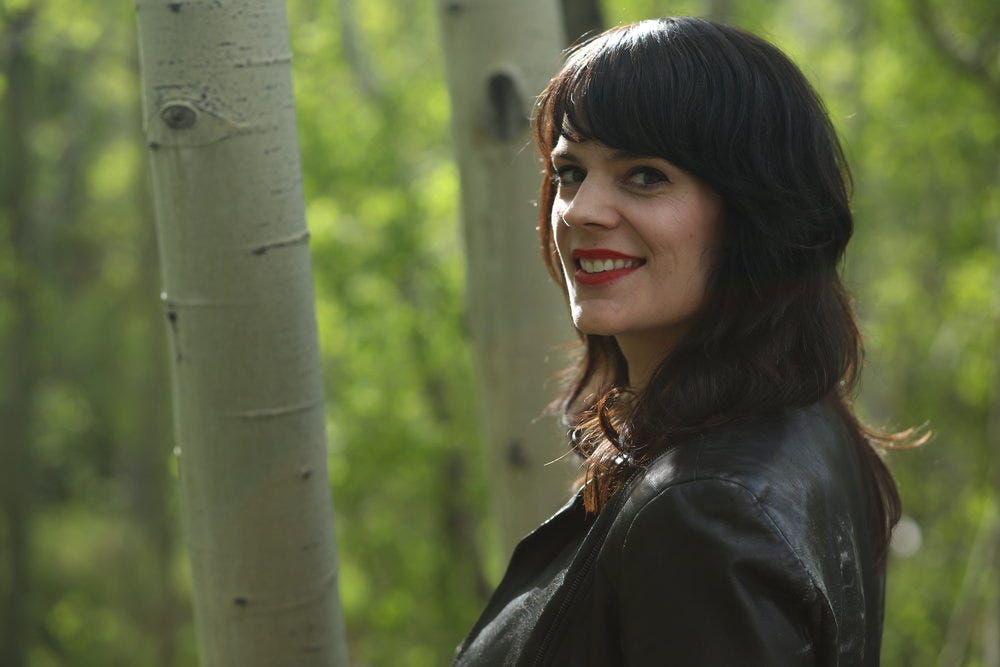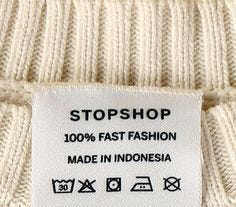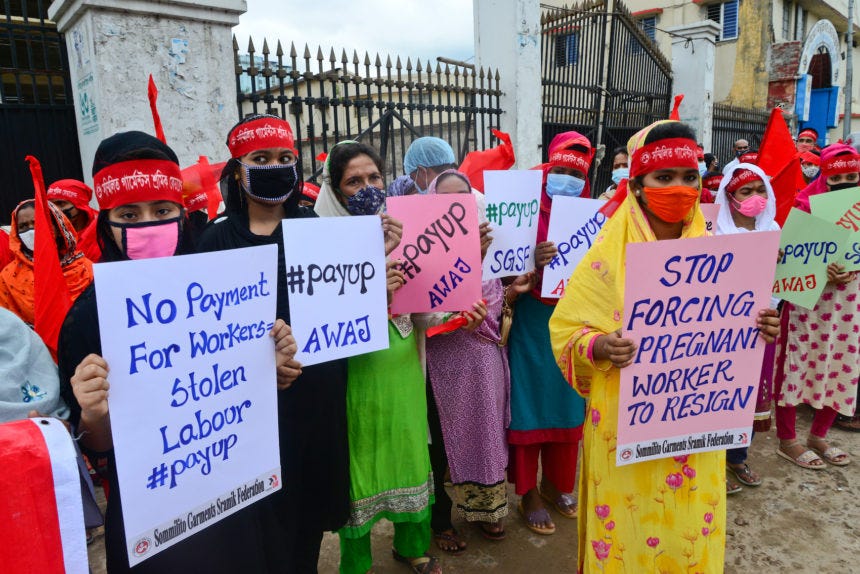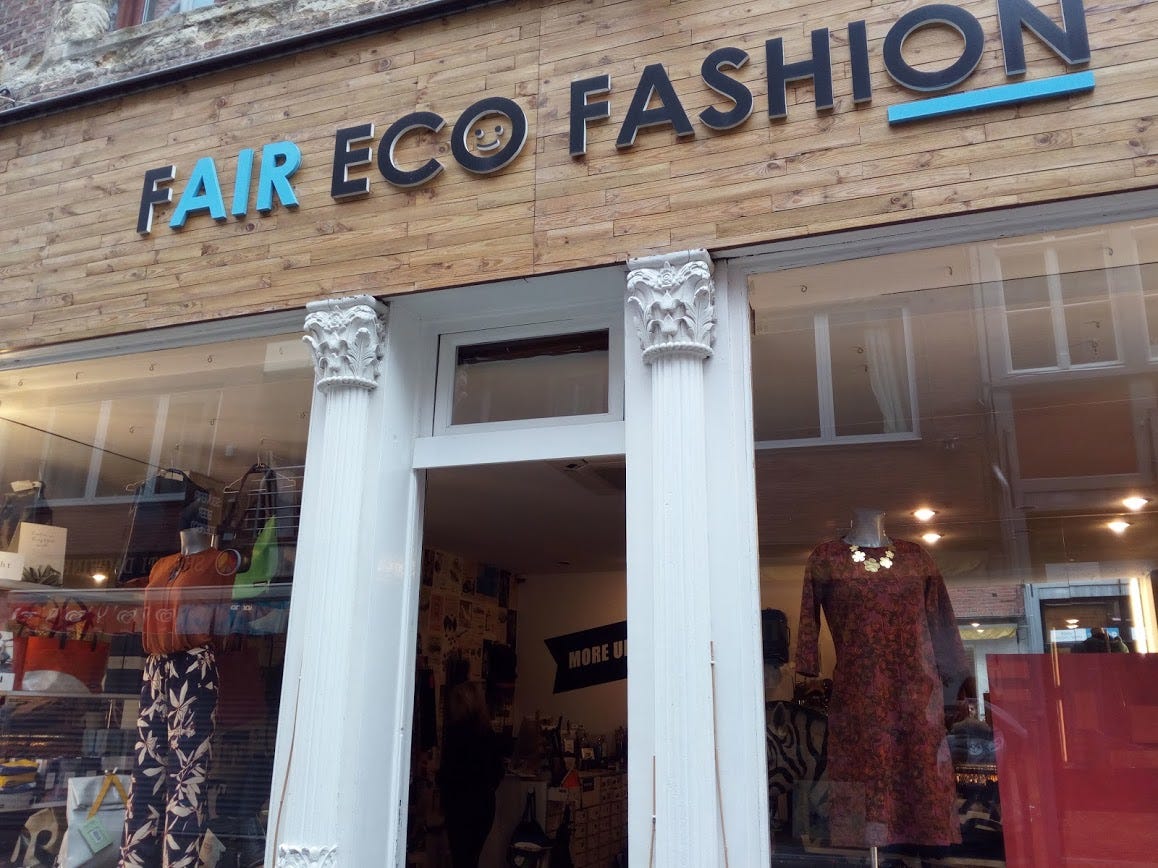Can we shop our way out of the climate crisis? The Green Fix on ethical consumerism
Even climate activists shop on Amazon sometimes.
I’ve shopped almost entirely secondhand for nearly six years.
Until Wednesday, when I suddenly became the most ardent customer of the nearest chain homeware shop.
What can I say? I moved into a new place with no bedding and secondhand shops are still shut in Belgium. The sales assistant was indifferent to my moral crisis. The world kept spinning.
And really, I don’t feel bad. That firsthand fitted sheet didn’t revoke my activist license. I can still sign petitions, volunteer and email politicians.
The climate crisis is too urgent to waste time agonising about being a perfectly sustainable individual. Our power to change the world is not limited to whether we buy something plastic-wrapped or not. We need to shift the spotlight away from our shopping baskets and onto the corporations and the politicians.
Trying to shop ethical, local and sustainable is good. Confronting brands directly - even if you shop from them - and demanding change is even better.
***
I have a new **mysterious** project! (It’s not mysterious, if you ask me I’ll tell you). The Green Fix might be expanding - but I need your help. Please take 5 minutes to fill out this survey on what resources would help you do more for the climate, and for the chance to get involved in the project!
***
Do you find the Green Fix useful? Then help me out by sharing it!
What’s Going On?
France moves to ban short flights if the same journey can be completed by train in under 2.5 hours.
Relevant: How many carbon emissions would my flight emit?New study finds funding from European and US countries may be driving 40% of new coal plant emissions.
Useful: Carbon Brief on the significance of this study.The 20th April was the 10-year-anniversary of the biggest oil spill in US history. Hot Take used the anniversary as a reminder to call out BP on their environmental impact.
Related: How BP invented the concept of the personal carbon footprintIndigenous communities in Ecuador demand reparations for damages to their lands by oil spills last year.
Related: Amazon Watch report on how global corporations enable violations of indigenous people’s rights.US President Biden announces pledge to cut US emissions in half by 2030 (coming in just behind the EU’s deal to cut greenhouse gas emissions by 55%)
Relevant: What impact does the US have on the climate?
Focus On… Ethical Consumerism

My name is Elizabeth L. Cline. I’m a journalist, activist, expert in consumer culture, labor rights, and sustainability in the fashion industry, and the author of two books: Overdressed: The Shockingly High Cost of Cheap Fashion and The Conscious Closet: The Revolutionary Guide to Looking Good While Doing Good.
I helped organize the #PayUp campaign, which helped to secure $22 billion in stolen money back to factories during the pandemic, and launch the PayUp Fashion 7 Actions, a campaign to hold brands accountable and end starvation wages in fashion.
You recently wrote about the death of 'ethical consumerism.' What is an 'ethical consumer'?
‘Ethical consumption’ is an entrenched set of beliefs that we are changing the world through the way we shop and that shopping is a moral act.
It’s built on the idea that the marketplace is self-correcting and that if we send the market certain cues that we want ethical and sustainable stuff, then the market will become more enlightened and fair.
Ethical consumerism is flawed. Guilt can be a motivating force and personal accountability is important, but in a capitalist society, we have to buy stuff to meet our needs. Those decisions are driven by our income, time, knowledge, and access. Expecting people to make consumer decisions based on ethics can end up reinforcing privileges and inequality.

Because of ethical consumerism, many people think they can’t participate in social movements or call out a company because of where they shop. For example, many people think they can’t hold Amazon accountable because they shop on Amazon.
This is a completely backwards and dangerous idea. Companies are responsible to society and to us, no matter where we shop.
Ethical consumerism misunderstands the cause of exploitation in society. It is built on the flawed and strange idea that consumer demand is what is primarily causing exploitation and can somehow cure exploitation.
Markets move towards profit and towards labor and environmental exploitation. The only proven way to balance that out is via grassroots movements, a strong labor movement, and robust labor and environmental laws.
In the same article, you gave up on ethical consumerism as a way to create real change. Are there any personal ethical consumption habits you still practice?
When I speak of ethical consumerism, I’m talking primarily about a set of beliefs, a paradigm that overemphasizes our power as consumers to make change. We need to abandon that set of beliefs. It is not really concerned so much about where or how we shop, but the ideas we attach to shopping.
It matters immensely to local businesses and ethical and sustainable businesses when we support them. So if you want to support ethical and sustainable brands, do so, but shopping differently is not tantamount to tackling the underlying root causes of inequality and environmental exploitation.
If anything, the presence of ethical and sustainable brands should be a reminder that unethical and unsustainable brands still exist, and that we have so much more work to do.
For the most part, the way I shop hasn’t changed since writing the story. I still support local and independent ethical and sustainable businesses, but I also buy things from big box stores and some fast fashion chains, and I have let go of the guilt I once attached to that decision.
To me, where we should be really holding each other accountable is as citizens. We should be asking each other where we’re volunteering our time, what organizations and grassroots movements we’re supporting or contributing to, what petitions we’re circulating, what laws and policies we’re advocating for, what educational materials we’re sharing.
How can we become consumer activists?
There is a long and rich history of social change that happens outside of the world of buying things and of business. This includes policy, law, grassroots organizing and social movements, labor unions, education, NGO advocacy work, community work and educational events.
But one of the easiest ways to become a consumer activist is whenever you find out about a company doing something wrong, hold that company directly accountable for the harm they cause. Call them out on social media, join campaigns demanding that they change, and if you want to stop supporting them, do it through a coordinated boycott.

Within fashion, there are many examples of consumer activism campaigns. Aurora James’ 15 Percent Pledge campaign demands large retailers dedicate 15% of their shelf space to Black-owned business. #PayUp demands that brands pay factories and garment workers for clothing already made prior to the pandemic. The Clean Clothes Campaign demands that brands pay living wages and support a social safety net for garment workers.
Most of us are already doing parts of public social change every time we circulate a petition for a cause we care about, share information about a campaign demand, donate to grassroots groups or advocate for a political candidate, or volunteer in our communities.
A good next step might be finding an organization or political party to volunteer with to keep learning and to get more involved.
Is there hope of changing a broken political system to one that puts human rights and the environment first, and if so, how do I help make that happen?
Most revolutionary changes in society are fought for and won by regular, everyday people. Look at the Chauvin guilty verdict. That is directly because of Black Lives Matter and anti-racist organizing at a grassroots level.
From the civil rights movement to the gay rights and queer movement to BLM and #PayUp - I personally believe that everyday people are the only ones truly equipped to make systemic change, as those in the system are so often working to protect the status quo.
The first step in changing the system is to just grasp that it’s broken. And that doesn’t require expertise. Anyone who has enough information to make ethical and sustainable consumption choices knows a lot about how the system is broken.
But the easiest way to learn how to change the system is to volunteer or join a group already doing the work. As a citizen in a democracy, we are in charge!
Follow Elizabeth Cline on Instagram @elizabethlcline, and check out the PayUp campaign.
So Now What Do I Do?
LEARN MORE
Read: Why do we need a revolution in the fashion industry?
Subscribe to the Clean Clothes Campaign newsletter of news and actions you can take part in.
Check out this free online course on what it means to be a global citizen and how it can help change the world.
TRY SOMETHING NEW
Use this checklist of questions to hold fashion brands accountable for their treatment of their factory workers.
Calling students! Become an SDG Student in this initiative to help young people create sustainable solutions.
Aged 15-25? Apply to be a youth ambassador for Fashion Takes Action and promote circular and sustainable fashion. Deadline 11th May.
CHANGE THE SYSTEM
Take part in Fashion Revolution’s #ProtectProgress campaign to extend the nearly-expired agreement requiring safe working conditions for garment workers.
Pledge to build a greener fairer world and receive resources on sending a letter to your local politicians to join the pledge.
Sign up to Extinction Rebellion’s online World Festival on the 8th May for anyone interested in protesting the destruction of the planet.
Join the discussion!
We’ve just joined Wondr, an online social platform for sustainability, where you can join discussions with other members and share your own thoughts and resources!
Our page is brand new and looking a little lonely - so do help get the conversation started and let me know what you think about ethical consumerism here.
Stay in the loop
I share updates on the Green Fix, polls and additional resources on Instagram @coffee_and_casstaways. You can also say hi on Twitter.
Know someone interested in environmental issues? Forward this email to them - we want to reach people who care about doing more for the planet, with your help!






Great newsletter, thank you.
What I find interesting is the belief that "voting with your feet" actually works. For one, as Elizabth L Cline points out, unless you're part of an organised boycott, the company won't miss you as an individual. You have to be calling these companies out; challenging them lets your peers know what the companies are doing wrong.
What's also important to note is the work some companies/industries put in to actively steer you away from activism. From a lack of transparency to greenwashing, a lot of work is dedicated to making you think the problem isn't there, isn't a big deal, or has already been fixed.